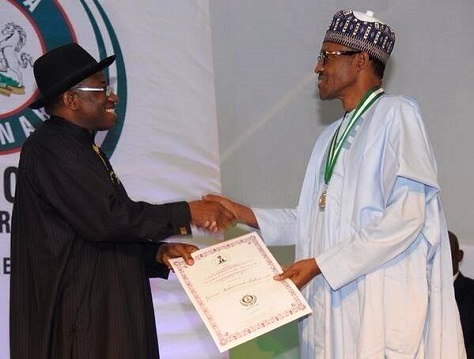It’s now official — Muhammadu Buhari, the former military head of state from 1983 to 1985, has won the Nigerian presidency in the closest election since the return of civilian rule in 1999. Buhari will be the first northerner to hold the office since the 2010 death of Umaru Musa Yar’Adua.![]()
It’s impossible to overstate just how important today’s election results are for Nigeria, for sub-Saharan Africa and for developing democracies. As an important partner for regional stability, Nigeria is one of the most vital allies of the United States in Africa today, even as it faces a handful of incredibly delicate security, economic and sociocultural challenges.
* * * * *
RELATED: Six weeks and Chadian intervention didn’t stop Boko Haram in Nigeria
* * * * *
With only the troubled northeastern state of Borno left to report results (a state that Buhari is expected to win easily), Buhari had 53.24% of the vote to just 45.67% for Jonathan, and he won not only the northern pro-Buhari states, but much of southwestern Nigeria as well (Buhari won the states marked in green below, Jonathan the states in red). Though the opposition, now merged as the All Progressives Congress (APC) already controlled Lagos, the governing People’s Democratic Party (PDP) of incumbent Goodluck Jonathan traditionally wins greater support in the southwest.
So what does this mean for Nigeria and for Africa? Continue reading Nigeria election results: What Buhari’s win means

